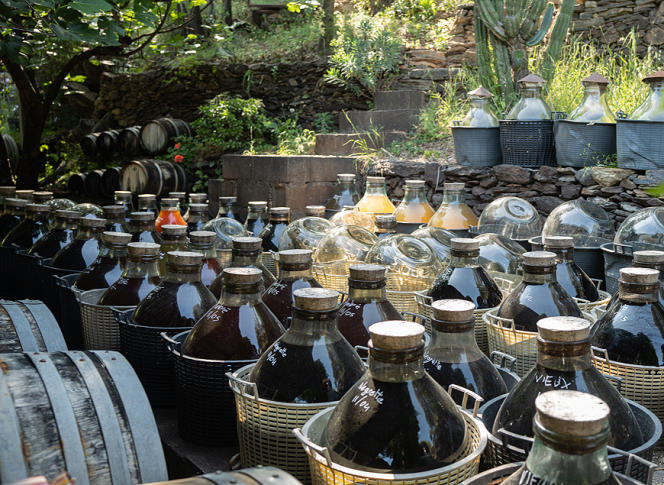It takes a lot of imagination to imagine Orléans as the effervescent capital of vinegar. “In the XVIIIe century, there were between two hundred and three hundred vinegar makers in the city, recalls the historian Loïc Bienassis. Barges loaded with wine traveled up the Loire and deposited their cargo in the river port of Orléans, which was then transported to Paris. But the alcohol could turn, it was then bought by the vinegar makers and transformed into vinegar. »
Of the din of the barrels rolling on the pavement, of their bitter perfume, of the sweat, of the cries, of the human agitation around this flourishing trade, nothing remains. Even the golden legend of the vinegar makers has evaporated: one rarely hears an Orléanais boast of this glorious past (the city produced up to 80% of French vinegars), and no history book comes to document it. “Vinegar is always nicknamed “the bad son of wine”, notes Anne-Charlotte De Langhe, who has just published an exciting little book in the form of miscellaneous, Incredible vinegars (Keribus editions, 192 pages, 24 euros). It has remained a back-of-the-cupboard product to which we only pay attention when the bottle is empty. »
While it offers unsuspected richness of taste. “Vinegar is usually thought of for making salad dressings, but it can be much more than that, confirms Jérôme Legras, the chef of the kitchens of the Ritz, in Paris. It can be used everywhere to balance excess fat or sugar. In the 1990s, the success of sherry vinegar started the trend for sweet vinegars, such as raspberry vinegar, and fruit juice cut products. We are now returning to a traditional vinegar, but which can also be changed if we take a little trouble. »
In Orléans, out of the hundreds of specialized establishments, only one large house has survived: Martin-Pouret, created in 1797, whose buildings, rebuilt after the Second World War, raise their gross, gray and dilapidated mass in the rue du Faubourg -Bannier, in Fleury-les-Aubrais, a town near the town centre. In 2019, this small family business was shaken by the arrival of two buyers that nothing predestined to be passionate about the acid condiment: Paul-Olivier Claudepierre and David Matheron, quadras who met on the benches of Essec .
On the model of Modena
The duo is not from the region, and unaccustomed to the culture of SMEs (one worked in a multinational coffee company, the other in a manufacturer of submarines), but display a sincere passion for good food . “We wanted to take control of a French company with real know-how, explains Paul-Olivier Claudepierre. We prospected by simply browsing the shelves of the Bon Marché, and we spotted the Martin-Pouret vinegar. By digging, we realized that this company, run by the same family for six generations, had enormous potential. »
You have 67.98% of this article left to read. The following is for subscribers only.
